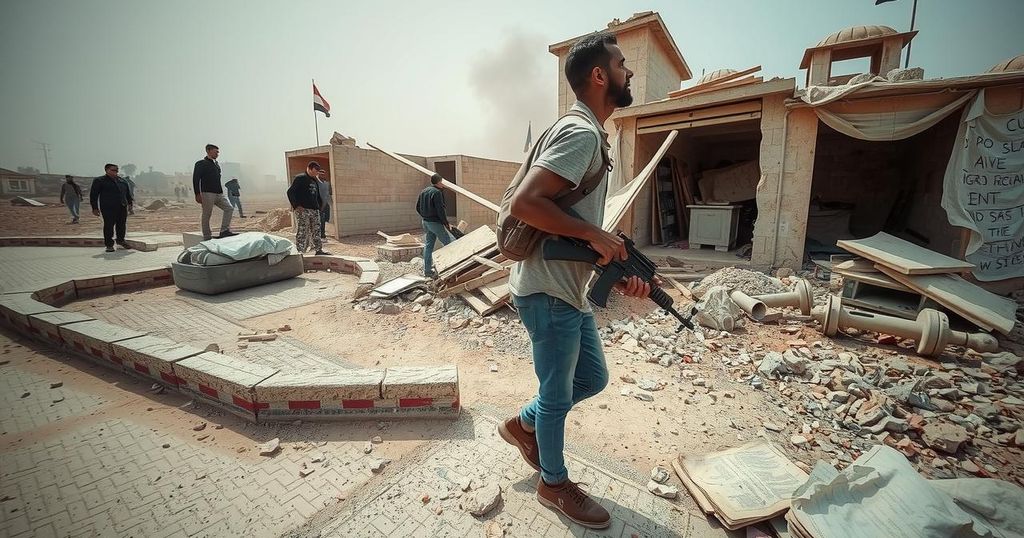Renewed Conflict in Syria: The Reclamation of Aleppo and Its Implications

The Syrian civil war has reignited as a reformed rebel alliance, Hayat Tahrir al-Sham, swiftly reclaimed Aleppo with minimal resistance. The situation reflects significant geopolitical dynamics, including Russian military reallocations and Hezbollah’s weakened state as well as Turkey’s strategic involvement amid shifting U.S. policies. This development raises critical questions about the future of the conflict and the stability of the region.
Recently, the Syrian civil war has seen a resurgence as a reformed rebel alliance swiftly retook control of Aleppo, an event that follows a prolonged period of stagnation at the frontlines. Syrian President Bashar Assad’s regime initially faced difficulties against the Sunni-led rebellion but soon received substantial military support from Russia, Iran, and Hezbollah, turning the tide of the conflict. Despite limited international support, the rebellion fragmented, giving rise to extremist factions like ISIS, leaving millions displaced and resulting in a humanitarian crisis that has been largely overlooked for years.
As of last week, the newly restructured rebel group, Hayat Tahrir al-Sham (HTS), commenced a campaign that unexpectedly met little resistance as it reclaimed Aleppo. HTS, having distanced itself from its former al-Qaeda ties, is still deemed a terrorist organization by various nations, raising questions about the motivations behind this renewed offensive.
Several geopolitical factors appear to interplay intricately in this latest development. The ongoing war in Ukraine has stretched Russian military resources, resulting in decreased attention to Syria. Concurrently, Hezbollah’s diminished capabilities due to losses in their engagements with Israel have left Assad vulnerable. Iran’s positioning is similarly precarious, balancing its interests across multiple fronts amid internal and regional challenges. Recent commentary suggests that Turkish President Recep Tayyip Erdogan has played a pivotal role in permitting HTS’s advance, likely in response to shifting dynamics surrounding U.S. foreign policy and troop engagements. The situation has evolved significantly, highlighting the complexities involving Turkey, Iran, Israel, and Russia, warranting closer examination of these interconnected conflicts internationally.
The Syrian civil war, which began amid the broader Arab Spring in 2011, ignited when peaceful protests for democratic reforms were violently suppressed by Assad’s regime. Over time, a significant armed rebellion emerged, initially gaining ground against the regime’s forces. However, with the intervention of foreign powers such as Russia and Iran, the conflict’s direction shifted, contributing to a multifaceted crisis with drastic implications for regional stability and international relations. Years of war have led to widespread devastation, displacing millions and spawning extremist groups, while international interest has waned amidst other global priorities.
The recent events in Aleppo indicate a pivotal moment in the Syrian conflict, one that is influenced by geopolitical shifts and an interplay of regional actors. The limited resistance faced by HTS suggests a changing landscape, driven by the burdens placed on both the Assad regime and its international allies. Questions remain about the timing of these developments, and the implications they carry for future stability in the region and the broader international order.
Original Source: abcnews.go.com






